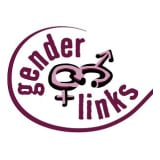
Gender Links (GL) is a Southern African NGO founded in 2001 that is committed to a region in which women and men are able to participate equally in all aspects of public and private life in accordance with the provisions of the Southern African Development Community (SADC) Protocol on Gender and Development. With its headquarters in Johannesburg, South Africa, and satellite offices in Mauritius and Botswana, and project sites in Lesotho, Madagascar, Namibia, Swaziland, Zambia, and Zimbabwe GL locates its mission within the broader framework of strengthening democracy in the region through ensuring the equal and effective participation of all citizens, especially women whose views and voices have been systematically marginalised.
From 2005 to 2008, GL worked with civil society partners in the campaign to elevate the Southern African Development Community (SADC) Declaration on Gender and Development into a Protocol with 28 targets to be achieved by 2015. GL coordinates the Southern African Gender Protocol Alliance that brings together over 40 NGOs at national and regional level in six thematic clusters for advancing gender equality in the region. In the coming year a seventh cluster on women and peace building will be formed.
A key GL area of focus is the transformation of gender relations is in and through the media. This is achieved by conducting research; training; creating and sharing content that demonstrates how gender can be integrated into media outputs; taking advantage of the opportunities presented by information technology and strengthening the communication skills of gender activists as well as women in decision-making. GL has pioneered gender and media literacy courses that aim to "watch the watchdogs"
GL is a founding member of, and hosts the secretariat of the Gender and Media Southern Africa (GEMSA) network. Together with the Media Institute of Southern Africa (MISA) the partners mount a Gender and Media (GEM) Summit every two years to show case what is working.
Through its gender justice programme, GL links activists and the media in campaigns to end gender violence. Together with government partners, the thrust now is to progress from campaigns to action plans with concrete targets, time frames and indicators for achieving the SADC target of reducing gender violence by half by 2015. GL is co-ordinating a cutting edge pilot project to develop indicators for measuring gender violence to enhance these efforts.
In 2003, GL embarked on a gender and governance programme that combines research and advocacy on women in decision-making with media training. Local government has emerged as a specific area of focus. The governance and justice programme come together in a unique initiative to localise national action plans to end gender violence with best practices shared annually. GL is currently involved in a cutting edge research project to develop indicators for measuring gender violence.
GL's "Write about rights" programme provides the glue to its different programme areas through its flagship Opinion and Commentary Service that links activists and decision-makers with the mainstream media. The "I" stories or first hand accounts provide an avenue for voices seldom heard in the media, such as those caring for People with HIV; survivors of gender violence and women councilors to speak out. The Gender and Media Diversity Centre (GMDC), launched in 2008, brings together media development NGOs and training institutions in a bid to "collect and connect" knowledge as well as "collaborate" in advancing gender equality and diversity.
All programmes are organised around the Gender and Media E Community which includes GL's list serve, website, data base of close to 5000 contacts and the cyber dialogue facility that enables GL to hold online discussions with participants in the region and across the globe


